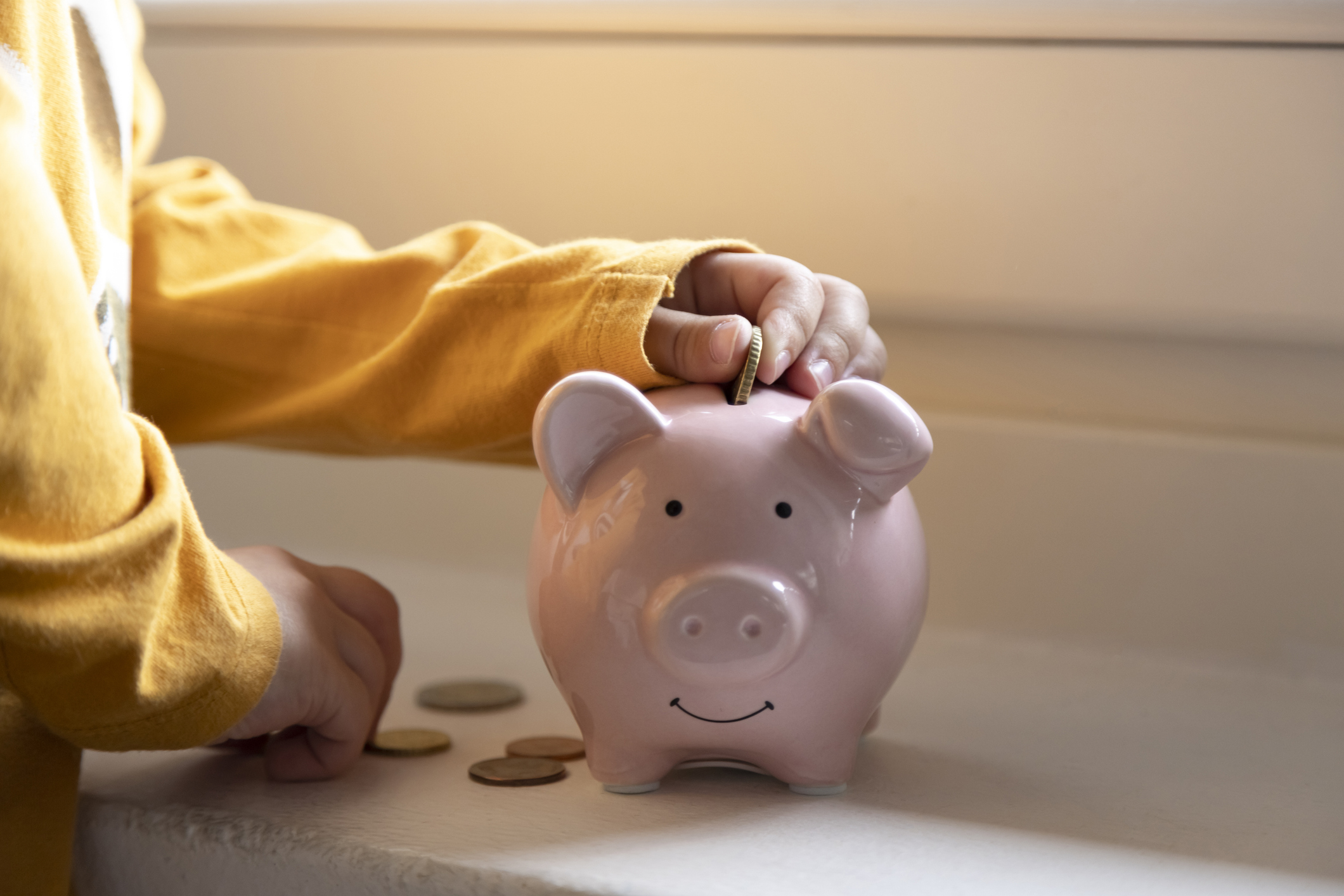What Is a Money Market Account?
Money market accounts give you rates of return rivaling high-yield savings accounts, with more flexibility to access your cash.

Sean Jackson
Profit and prosper with the best of Kiplinger's advice on investing, taxes, retirement, personal finance and much more. Delivered daily. Enter your email in the box and click Sign Me Up.
You are now subscribed
Your newsletter sign-up was successful
Want to add more newsletters?

Delivered daily
Kiplinger Today
Profit and prosper with the best of Kiplinger's advice on investing, taxes, retirement, personal finance and much more delivered daily. Smart money moves start here.

Sent five days a week
Kiplinger A Step Ahead
Get practical help to make better financial decisions in your everyday life, from spending to savings on top deals.

Delivered daily
Kiplinger Closing Bell
Get today's biggest financial and investing headlines delivered to your inbox every day the U.S. stock market is open.

Sent twice a week
Kiplinger Adviser Intel
Financial pros across the country share best practices and fresh tactics to preserve and grow your wealth.

Delivered weekly
Kiplinger Tax Tips
Trim your federal and state tax bills with practical tax-planning and tax-cutting strategies.

Sent twice a week
Kiplinger Retirement Tips
Your twice-a-week guide to planning and enjoying a financially secure and richly rewarding retirement

Sent bimonthly.
Kiplinger Adviser Angle
Insights for advisers, wealth managers and other financial professionals.

Sent twice a week
Kiplinger Investing Weekly
Your twice-a-week roundup of promising stocks, funds, companies and industries you should consider, ones you should avoid, and why.

Sent weekly for six weeks
Kiplinger Invest for Retirement
Your step-by-step six-part series on how to invest for retirement, from devising a successful strategy to exactly which investments to choose.
Money market deposit accounts (MMDAs) blend features of traditional savings and checking accounts. MMDAs will pay you higher interest rates than some checking and savings accounts do, and they give you more access to your money through debit card and check writing privileges.
Money market accounts also come with variable interest rates. It means if the Federal Reserve continues to cut interest rates, it can lower the rate of return you earn.
Overall, they make excellent savings vehicles if you're looking for easy ways to grow your money and access it. We break down how they work, usage limitations and the best options available.
From just $107.88 $24.99 for Kiplinger Personal Finance
Become a smarter, better informed investor. Subscribe from just $107.88 $24.99, plus get up to 4 Special Issues

Sign up for Kiplinger’s Free Newsletters
Profit and prosper with the best of expert advice on investing, taxes, retirement, personal finance and more - straight to your e-mail.
Profit and prosper with the best of expert advice - straight to your e-mail.
What is a money market deposit account (MMDA)?

An MMDA is a type of account offered by banks and credit unions. At a glance, MMDAs offer you higher interest rates and insurance protection with check-writing and debit card privileges.
The money you deposit earns interest at a variable rate, though the annual percentage yield (APY) tends to be higher than that of a traditional checking or savings account. Typically, the rate depends on the financial institution and the balance in your account.
The minimum opening deposit for a money market account generally ranges from $5 to $5,000. Some banks even offer money market accounts without a minimum deposit.
Like other savings accounts, money market accounts are insured by either the Federal Deposit Insurance Corporation (FDIC) or the National Credit Union Administration (NCUA) for up to $250,000 per depositor.
MMDA access and limitations
Accessibility makes MMDAs convenient for storing short-term cash for your emergency fund and for large and infrequent expenses, such as college tuition or tax payments. MMDAs may come with a debit card or checks that you can use to withdraw money.
Until 2020, the FDIC restricted MMDAs to six transactions every calendar month or statement cycle. Although the Fed has removed those limits, the number of allowed withdrawals can vary from bank to bank.
There is a workaround: Usually, you can make unlimited withdrawals and payments by using an ATM or by making the withdrawal in person.
Be cautious when withdrawing funds, as many money market accounts have a minimum balance requirement. Some financial institutions impose monthly maintenance fees if you don't maintain the minimum balance.
Top money market accounts right now
Use the tool below to find the right MMDA for you. You can search by savings and MMDAs, or filter to compare only MMDAs:
Where to find MMDAs with the highest interest rates

If you like the idea of an MMDA and have cash to stash, but the rates seem too low, keep looking around. Some banks have “elite” MMDAs that earn a higher yield.
These accounts commonly have tiered rates, meaning higher balances are rewarded with a higher APY and are usually found at online banks and top credit unions.
What is a money market fund (MMF)?
Money market funds (MMFs) are similar to MMDAs, but have a few important differences. MMDAs are a type of interest-bearing savings account that is insurance-protected. An MMF is an investment account that doesn't have FDIC or NCUA insurance.
MMFs are mutual funds that invest in very short-term debt instruments issued by corporations, banks and the U.S. Treasury. They can be excellent when you want to park savings somewhere while you ponder longer-term investments.
Because they are safe, many people have come to consider money-market funds as a permanent part of their savings plans, as well as a hedge against investment market risks.
MMF access and limitations
Although $1,000 is a common minimum initial investment, some funds are available for less, and virtually all accept smaller amounts for subsequent investments. Most funds permit you to write checks on your account, although the high minimum for checks — usually $250 or $500 — makes money-market funds unsuitable for everyday bill paying.
Shares in an MMF are generally redeemable at any time. The fund may impose a fee upon the sale of your shares, or may temporarily suspend your ability to sell shares, if the fund’s liquidity falls below required minimums or because of market conditions.
MMFs have management fees, also known as expense ratios. These fees are stated as percentages and impact your overall returns since they’re deducted from your earnings. Be sure to compare the cost of any account fees and expense ratios and consider how those expenses will impact your earnings.
Money market funds in asset management accounts
If you have different types of investment accounts and want to streamline your portfolio, an asset management account may be the solution.
This type of account, which is offered by brokerage firms and banks, can be a good vehicle for managing your cash if you have a lot of it and feel you can use the other services such accounts deliver.
Both full-service and discount brokers offer cash management accounts to clients who have stocks, bonds, cash, mutual fund shares, or a combination in their accounts.
You get a line of credit, check-writing privileges on your money-market funds, and several other services. Account fees range from $50 to $300 a year, but may be waived if you have $100,000 or more in your account.
How do these accounts work? You deposit money into your asset management account, and the funds are swept into a money market fund. The funds earn interest until you write a check, use the debit card to make a purchase or withdraw cash, or purchase stocks, bonds, mutual funds or other investments.
At the end of each month, you receive a consolidated statement detailing the checks posted, deposits made, investments owned, transaction history, dividends and interest received.
Bottom line on money market accounts
Money market accounts are a safe place to park money in the short-term while considering what to invest in next, to pay infrequent large expenses or to use for your emergency fund.
Risk, rate of return and access to your funds are factors you should weigh before choosing which type of money market account is best for you. Bear in mind that one significant difference between a savings account and an investment account is FDIC/NCUA depository insurance.
If recent bank failures have you on alert — you may want to play it safe and choose a money market deposit account.
Related Content
Profit and prosper with the best of Kiplinger's advice on investing, taxes, retirement, personal finance and much more. Delivered daily. Enter your email in the box and click Sign Me Up.

Donna joined Kiplinger as a personal finance writer in 2023. She spent more than a decade as the contributing editor of J.K.Lasser's Your Income Tax Guide and edited state specific legal treatises at ALM Media. She has shared her expertise as a guest on Bloomberg, CNN, Fox, NPR, CNBC and many other media outlets around the nation. She is a graduate of Brooklyn Law School and the University at Buffalo.
- Sean JacksonPersonal finance eCommerce writer
-
 Dow Adds 1,206 Points to Top 50,000: Stock Market Today
Dow Adds 1,206 Points to Top 50,000: Stock Market TodayThe S&P 500 and Nasdaq also had strong finishes to a volatile week, with beaten-down tech stocks outperforming.
-
 Ask the Tax Editor: Federal Income Tax Deductions
Ask the Tax Editor: Federal Income Tax DeductionsAsk the Editor In this week's Ask the Editor Q&A, Joy Taylor answers questions on federal income tax deductions
-
 States With No-Fault Car Insurance Laws (and How No-Fault Car Insurance Works)
States With No-Fault Car Insurance Laws (and How No-Fault Car Insurance Works)A breakdown of the confusing rules around no-fault car insurance in every state where it exists.
-
 No-Fault Car Insurance States and What Drivers Need to Know
No-Fault Car Insurance States and What Drivers Need to KnowA breakdown of the confusing rules around no-fault car insurance in every state where it exists.
-
 7 Frugal Habits to Keep Even When You're Rich
7 Frugal Habits to Keep Even When You're RichSome frugal habits are worth it, no matter what tax bracket you're in.
-
 How Much It Costs to Host a Super Bowl Party in 2026
How Much It Costs to Host a Super Bowl Party in 2026Hosting a Super Bowl party in 2026 could cost you. Here's a breakdown of food, drink and entertainment costs — plus ways to save.
-
 3 Reasons to Use a 5-Year CD As You Approach Retirement
3 Reasons to Use a 5-Year CD As You Approach RetirementA five-year CD can help you reach other milestones as you approach retirement.
-
 How to Watch the 2026 Winter Olympics Without Overpaying
How to Watch the 2026 Winter Olympics Without OverpayingHere’s how to stream the 2026 Winter Olympics live, including low-cost viewing options, Peacock access and ways to catch your favorite athletes and events from anywhere.
-
 Here’s How to Stream the Super Bowl for Less
Here’s How to Stream the Super Bowl for LessWe'll show you the least expensive ways to stream football's biggest event.
-
 The Cost of Leaving Your Money in a Low-Rate Account
The Cost of Leaving Your Money in a Low-Rate AccountWhy parking your cash in low-yield accounts could be costing you, and smarter alternatives that preserve liquidity while boosting returns.
-
 This Is How You Can Land a Job You'll Love
This Is How You Can Land a Job You'll Love"Work How You Are Wired" leads job seekers on a journey of self-discovery that could help them snag the job of their dreams.